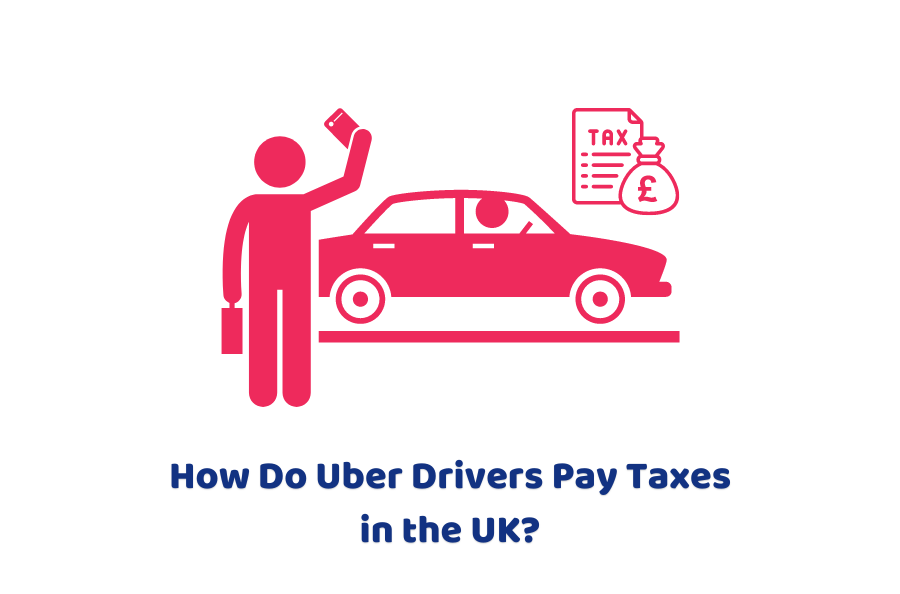Uber drivers in the UK have to face the challenge of paying taxes if their incomes go beyond the threshold of £1000. Some full-time Uber drivers can earn more than this threshold. However, the part-time Uber drivers have to really struggle to find the HMRC rules to enjoy the tax allowances and reclaim their tax returns. Do Uber Drivers Pay taxes UK?
In this blog, we will walk you through what is the working or employment status of these Uber drivers and how should they register themselves with the HMRC and what are the criteria and deadline for the tax returns. So, let’s start and evaluate this confusing tax phenomenon for Uber drivers in the United Kingdom!
Seek instant help from the professional accountants at the AccountingFirms in the UK. Paying taxes with the help of personalised accountants is more convenient than ever now.
Uber Drivers – Self-employed Persons
Uber drivers are considered sole traders or self-employed persons. So, they need to get themselves registered for the self-assessment tax returns. It helps them get the National Insurance Contributions in Class 4 and Class 2. As the sole trader is liable to pay self-assessment tax returns, the Uber driver has to pay these tax returns on or before the due date.
On the other hand, Uber drivers can enjoy a refund or claim mileage allowances from the HMRC. They can deduct business expenses from their taxable incomes and earn a tax relief from the HMRC.
How to Get Register with the HMRC?
The Uber drivers have to register with the HMRC by October 5 and report all the earnings of the previous tax years. For example, if you become self-employed in 2021, you have to register yourself as a sole trader with the HMRC by October 5 2022.
In case of missing this deadline or non-compliance, HMRC will charge you a penalty fee. However, if your income is less than £1000, it is not mandatory to be registered with the HMRC. But you can lose on enjoying the tax and capital allowances in this specific case.
However, if you earn more than this threshold, you have to be a registered taxpayer and HMRC will provide you with a Unique Taxpayer Reference (UTR) Number. After this, you have to submit self-assessment tax returns every year.
How Much Tax is paid by the Uber Drivers?
Uber drivers are considered self-employed. So, they have to pay taxes in the same manner as a sole trader pays. However, the National Insurance Contributions (NICs) are just like an employed person with slight changes.
Class 2 National Insurance is paid at a rate of 9% and Class 4 National Insurance is paid at a rate of 2%. The threshold of earnings for Class 2 National Insurance is between £9,501 and £50,000and that for the Class 4 National Insurance is beyond the level of profit of £50,000.
How to Claim Refund for the Business Expenses?
An Uber driver can deduct the business expenses from the tax returns. The expenses incurred for the business person are liable to get tax relief from the HMRC. The car-related expenses can be claimed as a refund and you have to maintain an accurate record of this to avoid any discrepancy later.
For this, two methods are used
- Car Mileage Method
- Actual Cost Method
In the first method, the mileages are calculated using the app of MileIQ to track the miles. For this, you need to maintain the mileage log to keep an accurate record. Moreover, you have to multiply the tracked mileages with the Approved Mileage Allowance Payment (AMAP) rates.
In the second actual cost method, you have to add up all the costs on your cars and deduct the personal-use costs. The deductions will be higher than the personal-use cars if you have purchased or leased a car.
Uber drivers can also deduct other costs such as business expenses from their tax returns and get a refund in the future. These business expenses are as follows:
- Bank fees & charges
- Car-related costs. For example, the cleaning and valeting costs
- Home as office deduction
- Phone-related costs as you are using the Uber App
- The cost of any training related to driving or Uber
- The fee for getting a private car hire licence
- Earnings Deductions made by Uber
- Giving water or snacks to the passengers
The Final Thoughts
Lastly, we can say the employment status of an Uber driver is that of a sole trader or a self-employed person. Like sole traders, they have to be registered with the HMRC and pay Self-assessment tax returns. However, the Class 2 and Class 4 National Insurance rates will be applicable just like an employed person.
Moreover, the calculation of business expenses can help Uber enjoy the allowances and other benefits of the HMRC. The business expenses are calculated using two methods of car mileage method and actual cost methods.
The other car related expenses can also be deducted as business expenses from the tax returns. Any delay in the registration with the HMRC will cause the Uber drivers to pay a penalty fee. So, it is important to learn about the Do the Uber Drivers Pay Taxes UK.
Discover accountants within the budget of your organisation and get premium services for the management of your taxes. Feel free to contact us at the AccountingFirms.
Disclaimer: All the information provided in this article on Do Uber Drivers Pay Taxes UK, including all the texts and graphics, is general in nature. It does not intend to disregard any of the professional advice.

